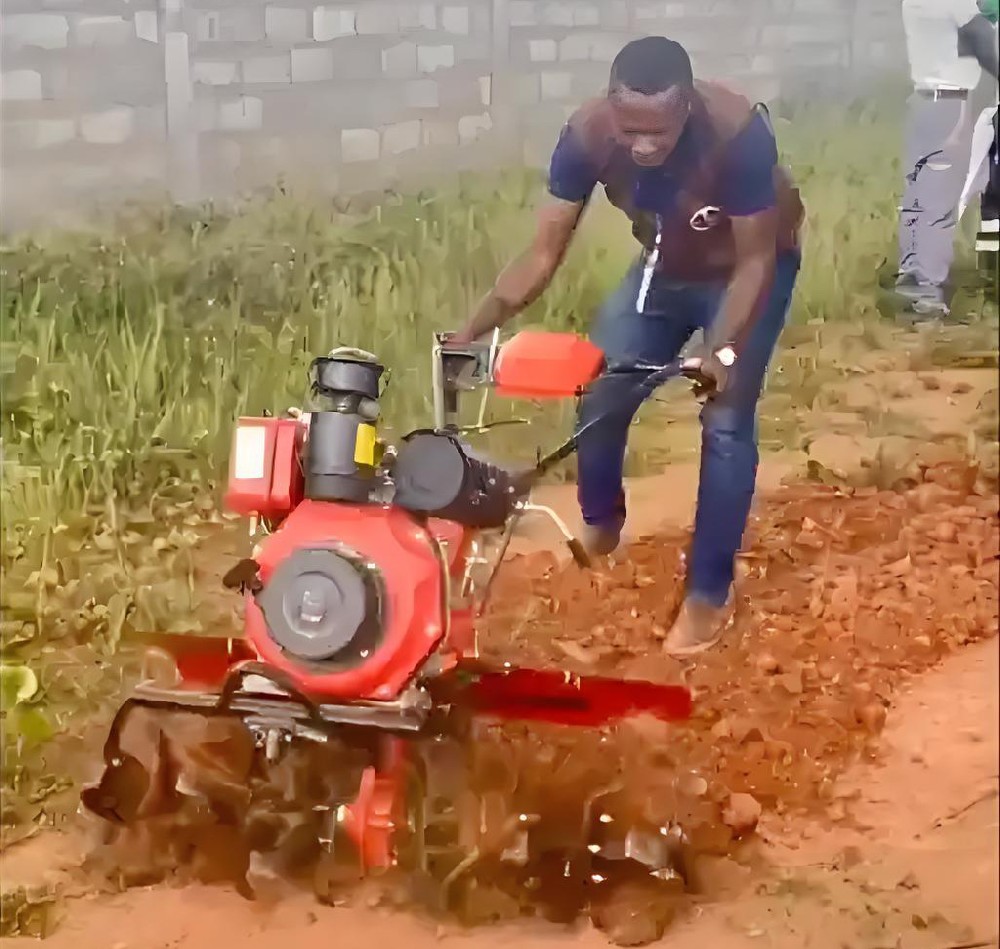From Manual to Mechanical: How African Clients Double Their Farming Efficiency with Modern Machinery
In today’s rapidly evolving agricultural landscape, the shift from traditional hand tools to advanced machinery is transforming farming outcomes across Africa. Our company, a leading Chinese manufacturer and exporter of agricultural equipment, has witnessed firsthand how this transition boosts productivity, reduces labor costs, and empowers local communities. By providing reliable, cost-effective machines tailored to African conditions, we help farmers achieve record-breaking yields and sustainable growth.
1. The Challenge of Manual Farming
Across many regions in Africa, agriculture has historically been labor-intensive, relying on hand hoes, animal-drawn plows, and seasonal labor. This limits the acreage farmers can cultivate, slows planting and harvesting, and constrains income potential. Climatic variability, rural labor shortages, and rising food demand have made manual methods increasingly unsustainable.
Key limitations of manual farming include:
Small plot sizes due to physical constraints.
Lower productivity per worker.
Difficulty keeping up with planting/harvest windows.
Higher post-harvest losses due to delayed operations.
2. The Rise of Mechanization
Recognizing these challenges, governments, NGOs, and private enterprises are promoting mechanization programs. Affordable financing, second-hand imports, and training support have all contributed to making tractors, planters, harvesters, and irrigation systems more accessible to smallholders.
Our company plays a vital role in this transformation by exporting robust, easy-to-maintain machinery specifically adapted to local conditions—such as reinforced frames for rough terrain, simplified controls for first-time operators, and spare-parts packages to ensure uptime.

3. Results: Efficiency Doubled
By introducing mechanical solutions, many African farmers have doubled or even tripled their efficiency. For example, a smallholder who once spent three days manually planting a hectare can now complete the task in less than half a day using a two-row planter. Similarly, mechanized threshers drastically reduce grain losses and post-harvest labor hours.
Core benefits our clients report:
Time Savings: Tasks completed up to 4× faster.
Expanded Acreage: Ability to cultivate larger plots and diversify crops.
Reduced Labor Costs: Fewer seasonal workers required.
Improved Yields: Timely planting and harvesting improve crop quality.
Economic Uplift: Higher income enables reinvestment in seeds, fertilizers, and education.
4. Related FAQs
Q1: What types of machinery are most in demand among African farmers?
A: Tractors (35–80 HP), planters, rice and maize harvesters, irrigation pumps, and post-harvest equipment such as threshers and shellers lead the demand. These machines fit small to medium plots and can be financed cooperatively.
Q2: How do Chinese exporters ensure machines are suitable for African conditions?
A: We adapt equipment with tropicalized engines, heavy-duty frames, and simplified maintenance systems. We also provide operator training, spare parts, and multilingual manuals.
Q3: Is mechanization affordable for smallholders?
A: Yes—many farmers join cooperatives, lease equipment, or access government/NGO loan schemes. Our company also offers flexible payment and after-sales support to reduce upfront burdens.
Q4: Does mechanization harm rural employment?
A: Studies show it often shifts labor to higher-value tasks—processing, marketing, or operating equipment—rather than eliminating jobs. Increased productivity can spur agribusiness growth and create new roles.
Q5: What’s the environmental impact of introducing machinery?
A: When managed well, mechanization can improve soil health through precision planting and conservation tillage. We offer equipment compatible with sustainable practices to minimize erosion and fuel waste.
5. Knowledge Insights: Why Mechanization Works
Mechanization increases output primarily through two pathways: labor substitution and timeliness. When a farmer plants at the optimal window, seeds germinate uniformly, resulting in better yields. Machines also allow precision application of inputs—fertilizer, water, and pesticides—reducing waste and environmental damage.
China’s experience over the last four decades shows how mechanization underpins rural development. By transferring that knowledge and technology to Africa, we help accelerate similar progress.
6. Overcoming Barriers
Despite the benefits, mechanization faces challenges such as financing gaps, spare-parts availability, and operator skills. Our approach addresses these by:
Partnering with local distributors and service centers.
Stocking fast-moving parts regionally.
Training mechanics and operators in collaboration with agricultural colleges.
Offering modular equipment that can be upgraded as farms grow.
These measures ensure long-term reliability and customer satisfaction, which in turn builds trust and positive word-of-mouth—critical for sustainable business in export markets.
7. Case Study: A Maize Cooperative in East Africa
One of our clients, a maize-growing cooperative of 60 farmers, transitioned from manual planting to a fleet of our mid-size tractors and planters. Within one season:
Planting time per hectare dropped from two days to three hours.
Harvest losses decreased by 30%.
Net incomes rose by 45%, enabling investment in storage facilities and solar dryers.
This success story exemplifies how the right equipment and training can transform rural livelihoods.
8. Strategic Takeaways for Farmers & Policymakers
Invest in training: Machines deliver maximum benefits when operators are well trained.
Think cooperatively: Shared ownership models spread costs and benefits.
Plan for maintenance: Secure spare parts and service agreements up front.
Adopt sustainability practices: Combine mechanization with conservation agriculture to protect soil and water.
9. Conclusion
The journey from manual to mechanical farming in Africa is more than a technological shift; it’s an economic and social transformation. By supplying durable, affordable, and context-specific agricultural machinery, our company helps African farmers double their efficiency, improve food security, and create a pathway to prosperity.
This narrative—rich with data, FAQs, and real-world examples—demonstrates to prospective clients and search engines alike that mechanization is the future of farming. It positions our company as a trusted partner in that future, offering solutions that deliver measurable results and long-term value.
Published by a global agricultural equipment manufacturer — delivering durable farming machinery, training, and after-sales support to international markets.
5. Get Your Personalized Solution Now
→ Call the selection hotline: +86 158 5359 8030 (also supports accessory customization inquiries).









